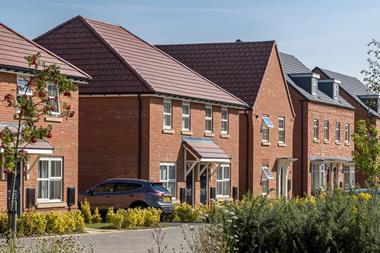The global real estate industry will be watching to see whether the US presidential election result will have an impact on global capital flows.
The US commercial real estate market is not expected to react immediately to the victory of Donald Trump, but the longer-term effects of the incoming presidency are more uncertain.
In the immediate aftermath, global stock markets fell, the US dollar weakened and parallels were drawn with the UK’s June referendum vote to leave European Union.
Michael Gateley, head of real estate research at Barings Asset Management, said: “It is unclear how much of Trump’s agenda will actually be implemented. In this sense, we’re facing a scenario not unlike June’s Brexit vote.
“We believe the best approach to investing is to let the initial shock subside and focus on the implications of Trump’s cabinet appointment and policy proposals going forward.”
Elisabeth Troni, head of EMEA research at Cushman & Wakefield, gave a similarly measured short-term prognosis. “As happened after the Brexit vote, we suspect that stock prices will rebound once investors digest the shock outcome and realise the impact of a Trump presidency might be smaller than initially feared,” she said.
“The vote for Brexit delivered an immediate shock, but since then UK economic data has held up relatively well.”
But questions remain over whether high levels of foreign capital will continue to flow into US real estate, which is widely perceived to be a ‘safe haven’ market.
Mark Gabbay, CEO for Asia at LaSalle Investment Management, told IPE Real Estate in London today that the US would remain a major destination for global capital, including Asian investors.
He said: “There’s a short-term pause – a natural reaction – and the result causes uncertainty in the largest safe-haven market.”
“The biggest risk is if gates to foreign investment are established. Access for investors will play a bigger role than ever in real estate investment.”
Uncertainty, he said, benefits the real estate sector and creates opportunity, of which, he said, there is no lack of across the Asia Pacific region. “For Asian markets, this is only net-positive in terms of diversification. We already saw inflows increasing last year.”
Gateley said the US real estate market’s solid fundamentals and underlying strength and transparency will “mitigate some of the initial shock”.
He added: “In the near term, Trump’s victory is unlikely to be viewed favourably by markets or by our trading partners and investors overseas. In the coming months, we will be paying close attention to Trump’s views on monetary policy, immigration, taxes and foreign policy.
“At the end of the day, the fundamentals underlying the US real estate market are sound.” It would, Gateley said, take a “very significant exogenous shock to derail the market”.
“Trump’s win – while certainly a shock – is unlikely to prove enough of a shock to sharply reverse that progress, particularly given the checks and balances in place.”
For Europe, Troni said there is the possibility that flight capital could eventually benefit London and other European capital cities, as investment into the US may be put on hold.
Unless there is material deterioration in economic conditions, market conditions across the UK and Europe are unlikely to change, she said.
“Occupier demand in EMEA was unaffected by the Brexit vote which was also a shock result,” she said. “Demand for commercial space in London has been dented by Brexit and a contraction in business investment, but outside London things are ticking along well.
“How persistent the weakening in London becomes is largely dependent on Brexit negotiations, but should remain generally unaffected by the US election outcome.”
Assuming markets calm down, Troni said, Cushman & Wakefield expects investors to resume efforts to deploy the record level of capital that has already been raised and allocated for European commercial real estate.
But the outlook for listed European real estate is “as clear as mud”, according to analysts at JP Morgan.
“The US election result doesn’t change anything for the fundamentals of listed property in Europe in our view,” a note from the firm said.
“On an underlying property capital flow level, the result could push more money into Europe, but with upcoming elections in France and Germany what will the US result do for political risk appetite.”











